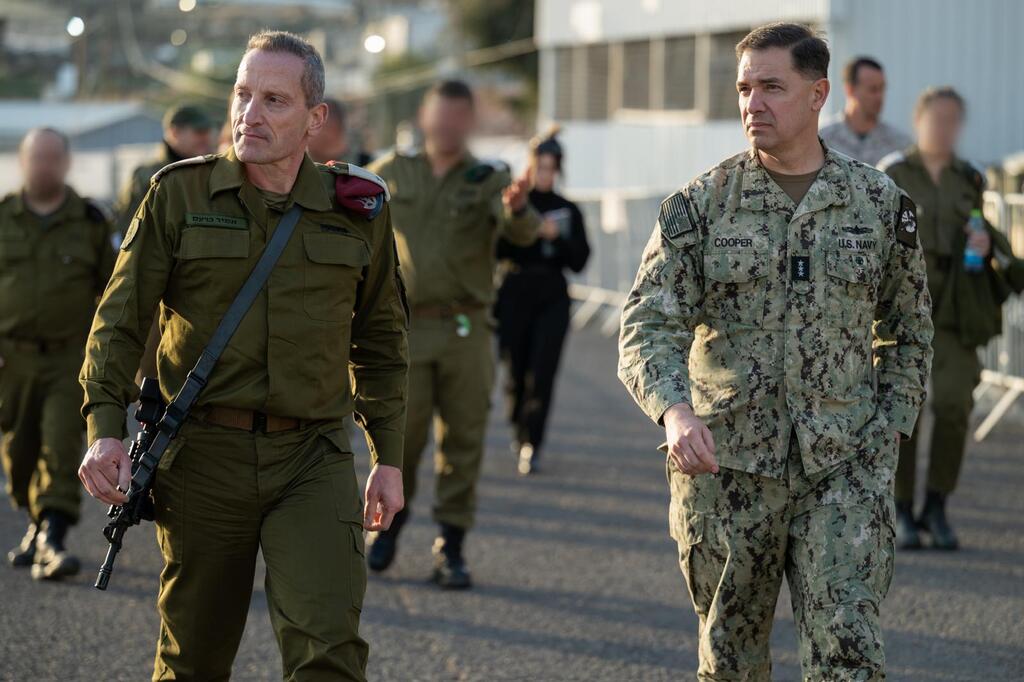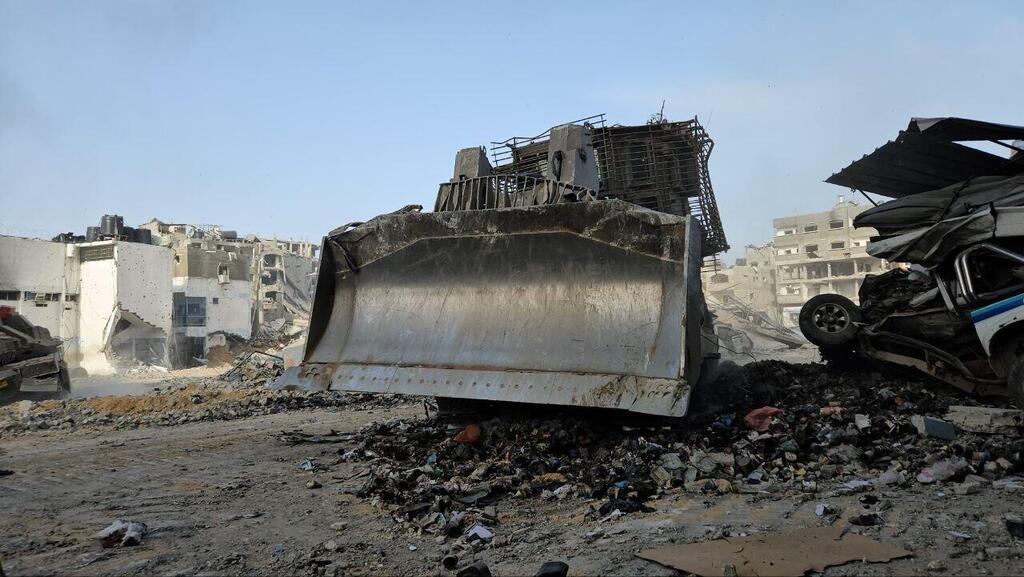Getting your Trinity Audio player ready...
The deputy commander of the U.S. Central Command (CENTCOM), Vice Admiral Brad Cooper, landed in Israel last week for a visit and met with the deputy chief of staff, Major General Amir Baram. The parties discussed shipments of critical weapons that the outgoing Biden administration has delayed and improving readiness for a possible joint attack on Iran's nuclear facilities.
Expected Secretary of Defense Pete Hegseth
3 View gallery


Who will strike Iranian nuclear facilities
(Photo: Iranian Leader's Press Office - HandoutGetty Images , AP, shutterstock)
Trump did not rule out the possibility that he would order an attack against Iran's nuclear facilities or support such an attack by Israel. At a press conference about three weeks ago, the president-elect was asked about a possible preemptive strike against Iranian nuclear facilities, amid reports that his team was considering such a step, and replied that he does not rule out any action.
Tehran is preparing for Trump's return to the White House, and amid Israeli threats, Iranian Foreign Minister Abbas Araghchi declared about two weeks ago that "2025 will be an important year in terms of the Iranian nuclear issue."
Araghchi made the remarks after a meeting with his Chinese counterpart in Beijing. He did not mention Donald Trump or elaborate on the significance of 2025. It is possible that his remarks were related to Trump's return, and Iranian fears that his entry into the White House would strengthen Prime Minister Benjamin Netanyahu.
According to the latest quarterly report published by the IAEA in November, Iran has already accumulated a fairly significant amount of 60% enriched uranium, an amount that is enough for four nuclear bombs. According to the report, as of October 26, the amount of uranium enriched to this level stands at 182.3 kg – an increase of 17.6 kg since August.
In order for uranium to be used to produce nuclear weapons, it must be enriched to a level of 90%, but nuclear scientists explain that the path from 60% to 90% is quite short and is considered a "technical" step which can be done in a few days or weeks.
Israel and the U.S. are discussing the Biden Administration's delayed weapons shipment, which includes 1,700 heavy bombs, 134 D9 Caterpillar bulldozers, and additional weapons. The IDF is already preparing to target Iran's nuclear facilities by improving readiness for a possible joint attack with the U.S.
The use of these bulldozers by the IDF led to major internal criticism in the U.S., protests and tremendous pressure on the Biden administration which gave in and froze the shipment. An examination conducted by Ynet in November revealed that dozens of IDF D9 bulldozers require maintenance. These bulldozers were also needed in southern Lebanon.
"At the height of the fighting in Gaza, about a year ago, battalion commanders 'fought' over D9 bulldozers, making it necessary to carry out maintenance on them," said an IDF commander in November. It is difficult to officially and directly link the deadly results of the raid in Jabaliya in October and November, and the 21 fighters killed in about a month, many from IEDs, to the dire need for D9 bulldozers.
Get the Ynetnews app on your smartphone: Google Play: https://bit.ly/4eJ37pE | Apple App Store: https://bit.ly/3ZL7iNv
In these operations, the bulldozers are usually the first to lead the combat teams, safely clearing "dirty" areas from explosives that are set to explode and harm infantry and armored soldiers. At the same time, it is clear this tool is not only operationally effective against tunnels and in built-up areas, but also protects soldiers' lives.
The US is still freezing a shipment of about 1,300 bombs for the Israeli Air Force, which the defense establishment has already purchased from Boeing - in shekels and not in aid dollars - weighing close to a ton per bomb, on the similar claim that the IDF could harm the civilian Gazan population with them. Half of this shipment, which was frozen about six months ago by the administration and caused a stir, has reached the IDF, but about half is still stuck in warehouses in the U.S. In addition, the defense establishment currently rents engineering tools for forces in the field from private contractors.







